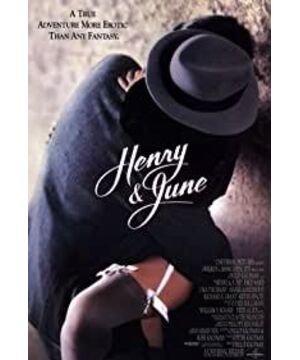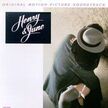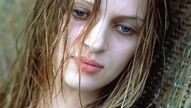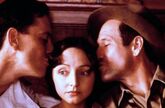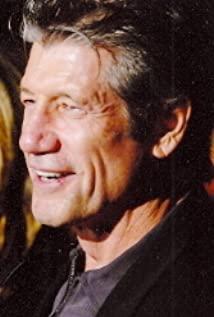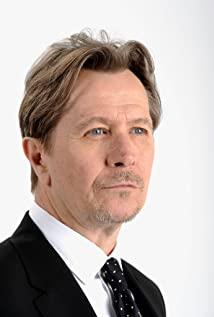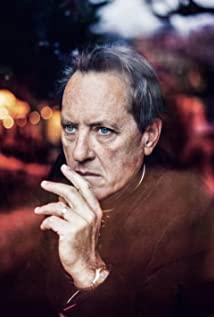It is the first film in the history of American cinema to be rated NC-17 (no one under the age of 17 is allowed to watch it). Another masterpiece of the year.
It is said that Kaufman was very unconvinced that he was rated as NC-17 and ran to Washington to protest. After the relevant person in charge of the American Film Institute watched it again, he believed that the previous rating was indeed inaccurate - many bold scenes in this film are even 17 years old. It is not advisable for anyone who is human to watch it in public, re-rating this film to X (pornography)!
The film is adapted from the diary novel "Fire" by Anais Ning, a Spanish dancer and a famous diary writer.
The point of view is that a female writer recalls her entanglement with the famous American writer Henry Miller and his wife Joan. However, what the film and all the details show is the Paris society with a strong literary atmosphere in the 1930s, which is full of eroticism, which is full of weird, violent and decadent eroticism.
(1)
Anne is a rich and beautiful female writer. Living in Paris, he was deeply impressed by the popular D. h. Influenced by Lawrence (representative work "Lady Chatterley's Lover"), he is full of yearning for the freedom and liberation of human nature.
The down-and-out American writer Henry Miller took refuge in Paris at this time. Anne's husband, Hugo, the banker, who was keen to make friends with literary people, was invited to be a guest at home.
This middle-aged uncle with half bald hair and squinting eyes, with surprising words and rough behavior, made Annie's eyes light up. During the family banquet, his topic of self-liberation coincided with Anne who was listening silently. Annie developed a strong interest in him, and a secret light flashed in those big, seemingly innocent eyes.
From giving away the typewriter, Anne gradually approached Henry's life. Living in a humble apartment in the streets of Paris, next to a group of jugglers, Henry lived a bohemian, starving life. At that time, he was writing his autobiographical novel "The Tropic of Cancer".
It is inappropriate to use "literati with each other lightly" here, they just reward each other. Anne greatly appreciated the writings of Henry, who was not yet famous at the time. Henry also liked her sharp writing. At one point, they commented on each other's manuscripts and cherished each other like a bosom friend.
Just like Faye Wong's lyric "You look innocent, it doesn't mean you are ignorant", although Annie is petite, with a wide forehead and big eyes, like a young girl who has not been deeply involved in the world, her mind is deep, and her demeanor is often mature in proportion to her age and appearance. with sophistication.
Henry's wife Joan came to Paris for a brief visit, and Anne saw the close love and sudden quarrel between Henry and his wife.
From the initial voyeur, she was attracted by their warm and unique personalities, and gradually entered their world, and she also embarked on a path of erotic entanglement and even disillusionment.
She and Henry moved from the battle of literature to the battle of the bed. The backstage of the ball, the side of the Kong Bridge on the left bank, Henry's apartment, and Anne's bedroom, all became battlefields.
She was lost in her own lust. She tossed between Henry and Hugo. Sometimes I feel guilty: I'm like a devil, between the two of them.
She even seduced her cousin who had liked her since childhood. She even had sex with a prostitute.
She wrote in her diary: I felt restless, full of energy, wanted to take risks, I wanted to secretly meet people, and my mind was full of lustful imaginations. I want to have fun...
At some point, I even suspect that she is using her body to experience different temperatures, different perceptions, different emotions between people.
She doesn't think it's all sexual harassment. Whenever she has sex with different people, she always mumbles: I feel so pure. Such words, coupled with the beautiful light and shadow, the dynamic body, and the big black and white eyes she looked forward to after the incident, concealed the lewdness and revealed the confused and complicated emotions.
Kaufman is a master at erotica. Just like in "Lust, Caution", Ang Lee uses several sex scenes to express the progressive relationship between the hero and heroine. In this film, there are many scenes of sex. The pictures are bold and the techniques are beautiful. The focus of each section is different. Show that the male and female protagonists are in different emotional stages.
The lighting, angles, shooting techniques, and even the soundtrack are all very sophisticated. For example, the scene where Hugo played the guitar on the balcony upstairs, and he kissed her breasts under the corner of the wall, was handled very artistically.
The screen uses a close-up. In the beautiful guitar sound, the man's big and powerful hands gently folded and slowly twisted and touched...
(2)
The film also used a third of the film to describe the ambiguous relationship between Anne and Henry's wife June. affection.
The Hong Kong translation is "Love June Flower", "June Flower" is the homonym of June, although the translation is very sentimental, it is actually inaccurate. In terms of content, this film aims to show Anne's erotic road to explore the emotional world, and Joan is just a part of her exploration.
Uma Thurman, the most beautiful woman in Hollywood history. When this film was made in 1990, it was the golden age of 20 years old. She played Henry's wife, Joan, brilliantly, bluntly, uninhibited, and neurotic. The face carved like a knife, the slender and sexy body, and the gestures are indescribably glamorous.
Joan was Henry's first friend. It was she who financed Henry's professional writing. Although the method used is somewhat unsatisfactory - from the dancer Lang to the puppet performer, there are occasional gray incomes.
And she was extremely dissatisfied with Henry's description of her, "This is not me," she said indignantly. Indeed, in the later Tropic of Cancer, Henry's wife is a mean and vulgar woman.
Anne was astonished from the first sight of her. Her curiosity about her is a novelty about a beautiful species.
And Joan's ambiguous words and demeanor towards Annie are an instinctive charm test—beauties who are confident in themselves are mostly used to playing this game.
She confessed to Annie: I've done a lot of debauchery. And Annie, who was blinded by her beauty, would only murmur, I think it's very pure.
They drink together, they sleep together. It all ended in a flash. They both still love that man, and are jealous, quarrel, and break up because of it.
And the male protagonist, Henry, has always been a selfish egomaniac in the film. He only demands from women, whether it is money or body. Either Annie or Joan.
He is the real hedonist.
On the other hand, the second male, Annie's husband, is like a beautiful relic in the era of uncontrollable lust. He was a business man—a successful financier—and an artist—a good drummer and a good guitarist.
He embraced Annie like a lover. See through but not break it, and treat it as nothing.
Paris in the 1930s is slowly presented in Kaufman's calm and restrained lens, like a long and varied picture.
One misty morning, Anne broke with the Henrys and returned to her husband. In Hugo's car, she burst into tears -
"I cried this morning. I cried because I love the street that got me off Henry, and maybe one day it will get me back to Henry. I cry because the process of
becoming a woman is so painful, and I cry more than ever." The
car slid down the alley, and in the back mirror, Henry was riding his bicycle alone, doing self-deprecating things in the back of the car. grimacing.
(3)
No matter which religious sect, it advocates the elimination of desire. Buddhists say that "form is emptiness, and emptiness is form." Christianity says "no adultery", and Taoism says "practice spirit will return emptiness". They all demand that people's desires be reduced, or even become non-existent. In the Buddhist saying, "If there is no desire, then you will be strong." This is probably the case.
When Ang Lee talked about the movie "Crouching Tiger, Hidden Dragon" in "A Dream in Ten Years of Sleep", he said, "The dragon returns to the sea, and the love forgets the tiger and the mountain. The dragon is nature, and the tiger is life." This movie , is also about the struggle of desire.
It seems that people's whole life is to fight against various desires. When you are young, you are often defeated by desire, and when you are old, you can occasionally win. However, there are few people on the market who truly achieve no desires and no desires.
In the film, Annie's cousin said a sentence: "Anomalous pleasures will hurt normal passions." It can be called incisive.
Everything, take it easy.
If you like my movie reviews, you can pay attention to my public account "Things with Shadows" (youyingdeshi)
View more about Henry & June reviews


